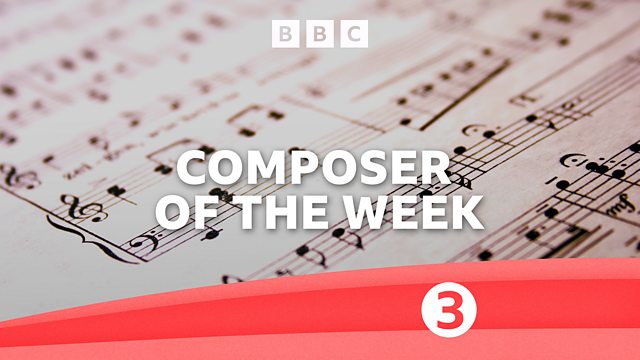
Afflictions and Obsessions
Donald Macleod explores the effect on Bruckner’s music of the composer’s ill health.
Donald Macleod explores the effect on Bruckner’s music of the composer’s ill health.
Anton Bruckner was one of the great symphonists, and yet recognition for his talents as a composer came late in life. An Austrian by birth, noted for his improvisatory skills at the organ, he received invitations to travel abroad to France and England to demonstrate his skills. But though he would eventually be recognised as one of the most innovative composers of the late 19th century, during his lifetime he was plagued by doubt. This week Donald Macleod lifts the lid on the life and music of Anton Bruckner, focusing upon different themes to better understand both the man and the music.
Bruckner was a sensitive person, who found it hard to take the criticism of the Viennese music press. And his clothes, dialect and mannerisms made the composer an object of ridicule in the city. He suffered from loneliness and depression and was admitted for treatment to a sanatorium at Bad Kreuzen. Bruckner had had a complete breakdown. But it wasn’t the cures of baths and sour cold milk which picked him up again, but his work on Mass No 3.
Bruckner's final symphony, Symphony No 9, would also be distinctly influenced by his ongoing health issues, composed when he was diagnosed with a heart condition and progressive liver failure. Bruckner poured all his energy into writing this symphony, and the Scherzo is the most terrifying of all his Scherzos - taking the listener to the edge of an abyss.
Pange lingua, WAB 33
Czech Philharmonic Choir Brno
Petr Fiala, director
Mass No 2 in E minor, WAB 27 (Sanctus)
Polyphony
Britten Sinfonia
Stephen Layton, conductor
Mass No 3 in F minor, WAB 28 (Agnus Dei)
Juliet Booth, soprano
Jean Rigby, alto
John Mark Ainsley, tenor
Gwynne Howell, bass
Corydon Singers
Corydon Orchestra
Matthew Best, conductor
Symphony No 4, WAB 104 “Romantic“ (Bewegt, nicht zu schnell)
Vienna Philharmonic
Christian Thielemann, conductor
Symphony No 9 in D minor, WAB 109 (Scherzo)
Berlin Philharmonic Orchestra
Simon Rattle, conductor
Produced by Luke Whitlock
Last on
More episodes
Next
You are at the last episode
Music Played
-
![]()
Anton Bruckner
Pange Lingua, WAB 33
Choir: Prague Philharmonic Choir. Conductor: Petr Fiala.- MDG : 9221422.
- MDG.
- 14.
-
![]()
Anton Bruckner
Mass No 2 in E minor, WAB 27 (Sanctus)
Choir: Polyphony. Orchestra: Britten Sinfonia. Conductor: Stephen Layton.- HYPERION : Hyperion-CDA67629.
- HYPERION.
- 5.
-
![]()
Anton Bruckner
Mass No 3 in F minor, WAB 28 (Agnus Dei)
Singer: Juliet Booth. Singer: Jean Rigby. Singer: John Mark Ainsley. Singer: Gwynne Howell. Choir: Corydon Singers. Orchestra: Corydon Orchestra. Conductor: Matthew Best.- Helios : CDH55332.
- Helios.
-
![]()
Anton Bruckner
Symphony No 4 in E flat major, "Romantic" (1st mvt)
Orchestra: Vienna Philharmonic. Conductor: Christian Thielemann.- SONY : 19439914112.
- Sony.
- 1.
-
![]()
Anton Bruckner
Symphony No 9 in D minor, WAB 109 (2nd mvt)
Orchestra: Berliner Philharmoniker. Conductor: Sir Simon Rattle.- Warner : 9529692.
- Warner.
- 2.
Broadcast
- Fri 16 Sep 2022 12:00����ý Radio 3
Beethoven Unleashed – the box set
What was really wrong with Beethoven?
Composers A to Z
Who knew? Five eye-opening stories from Composer of the Week
Five reasons why we love Parry's Jerusalem
What is the strange power of Jerusalem which makes strong men weep?
A man out of time – why Parry's music and ideas were at odds with his image...
The composer of Jerusalem was very far from the conservative figure his image suggests.
Composer Help Page
Find resources and contacts for composers from within the classical music industry.





